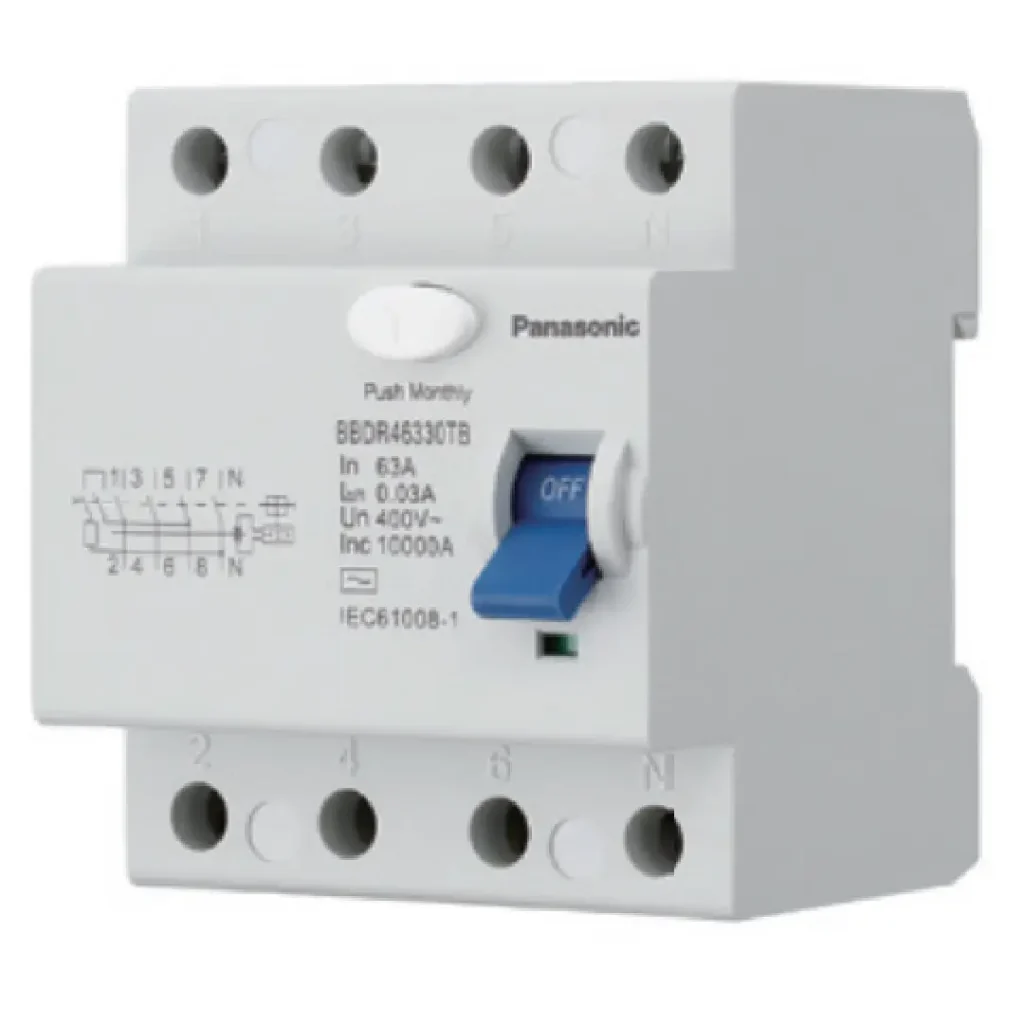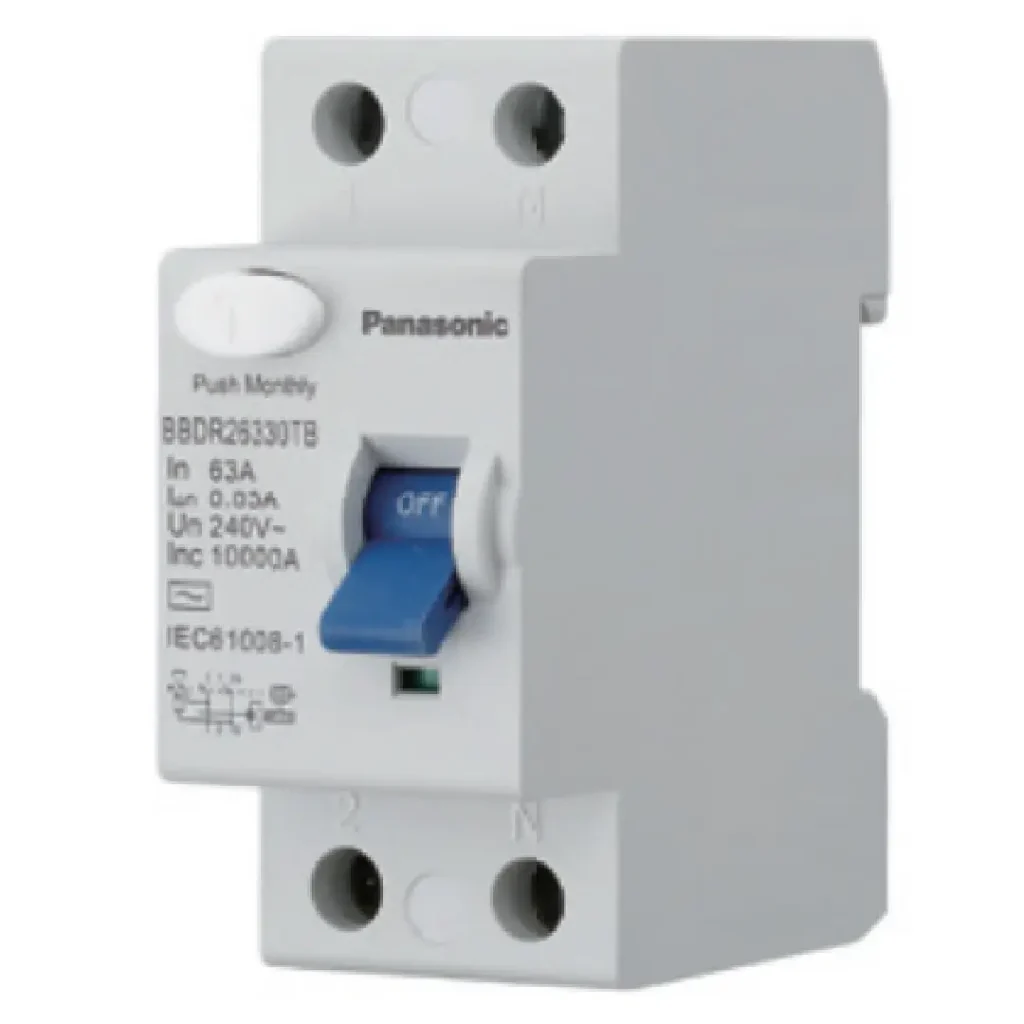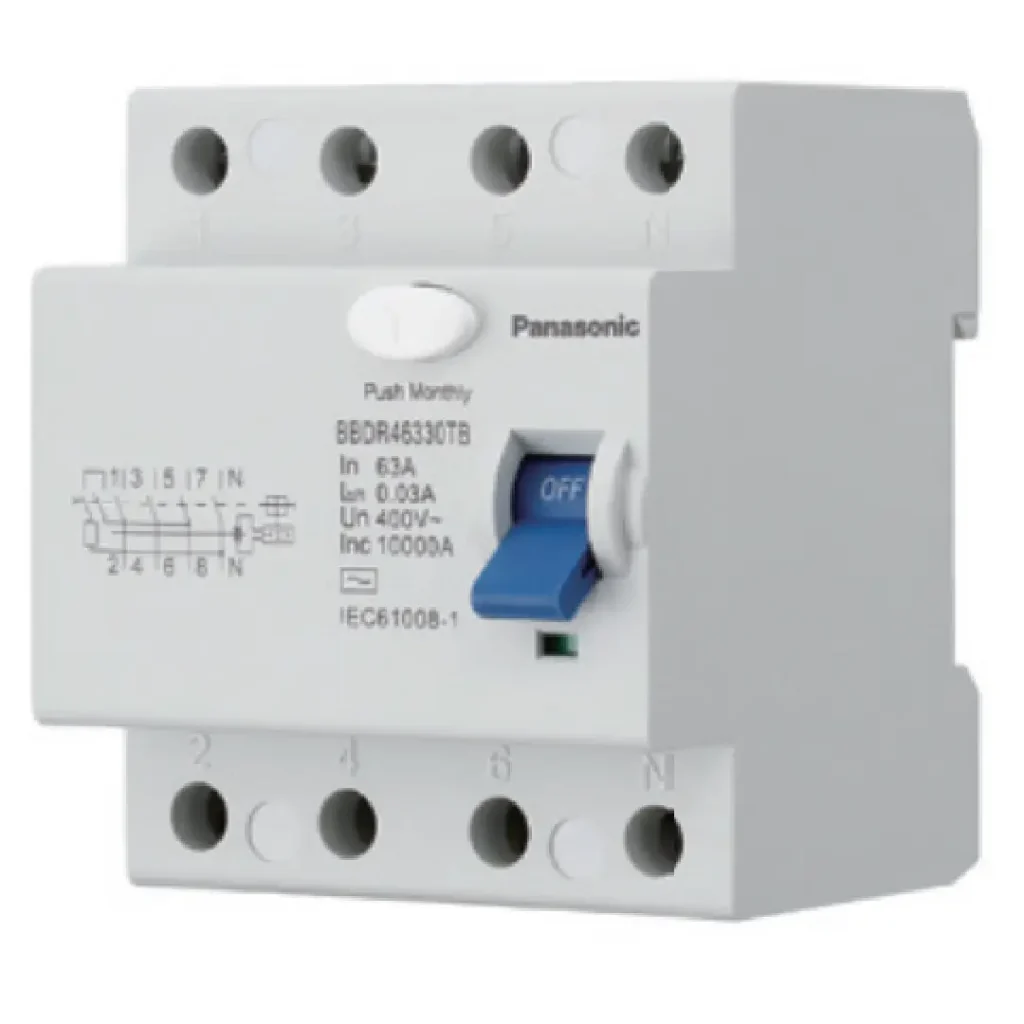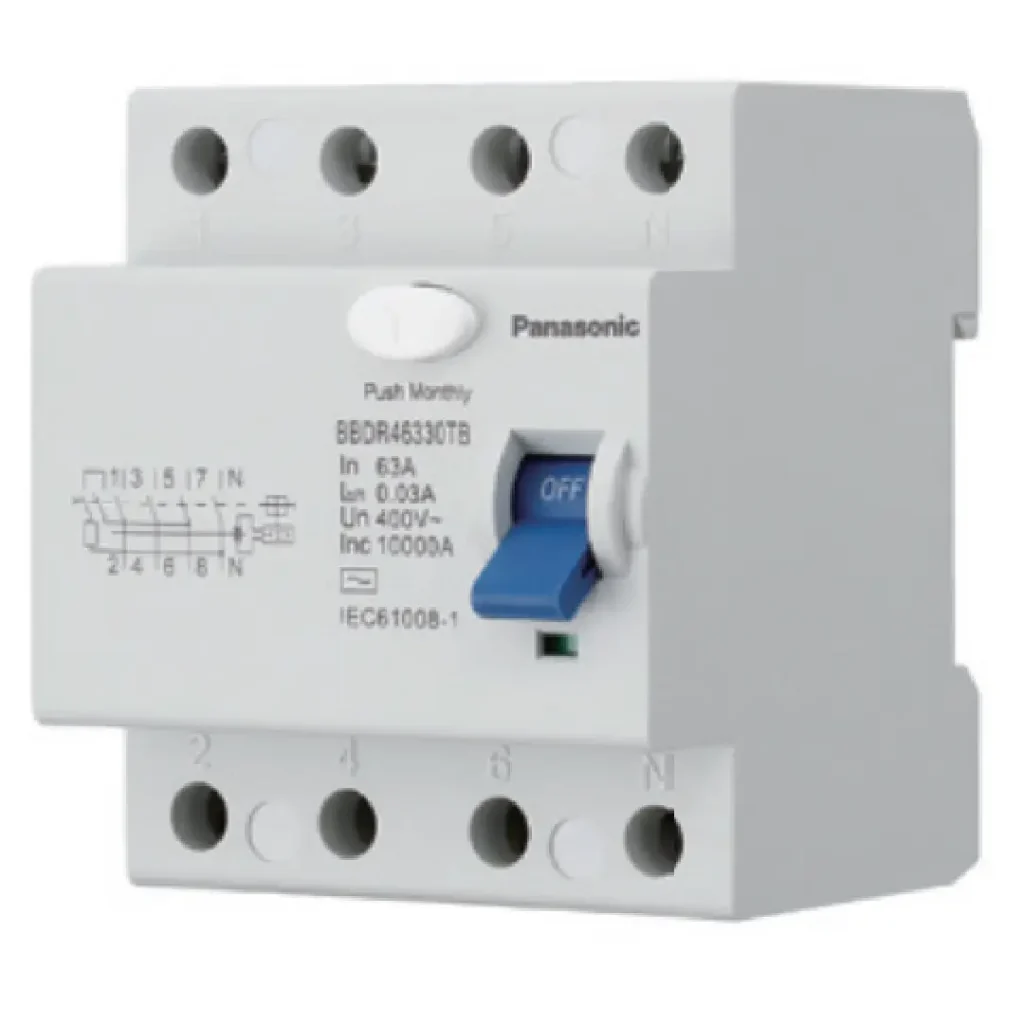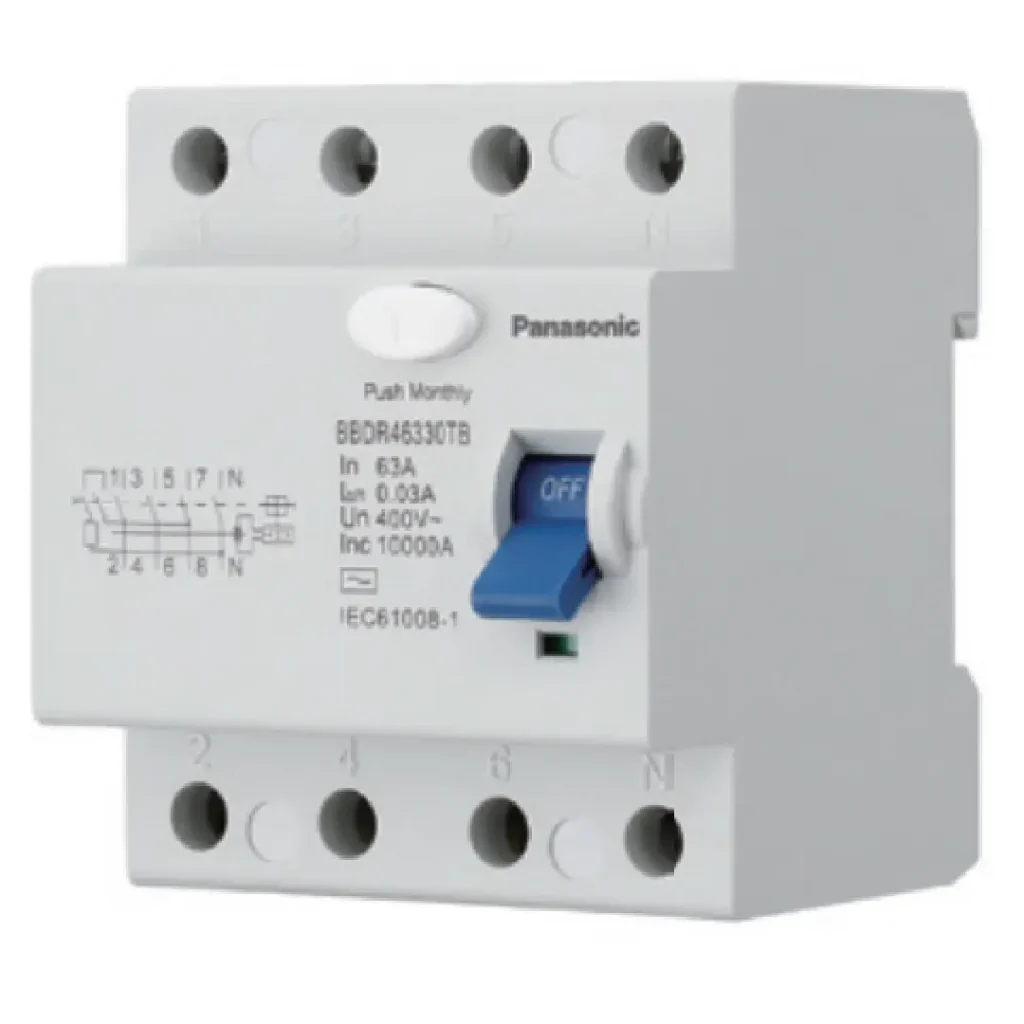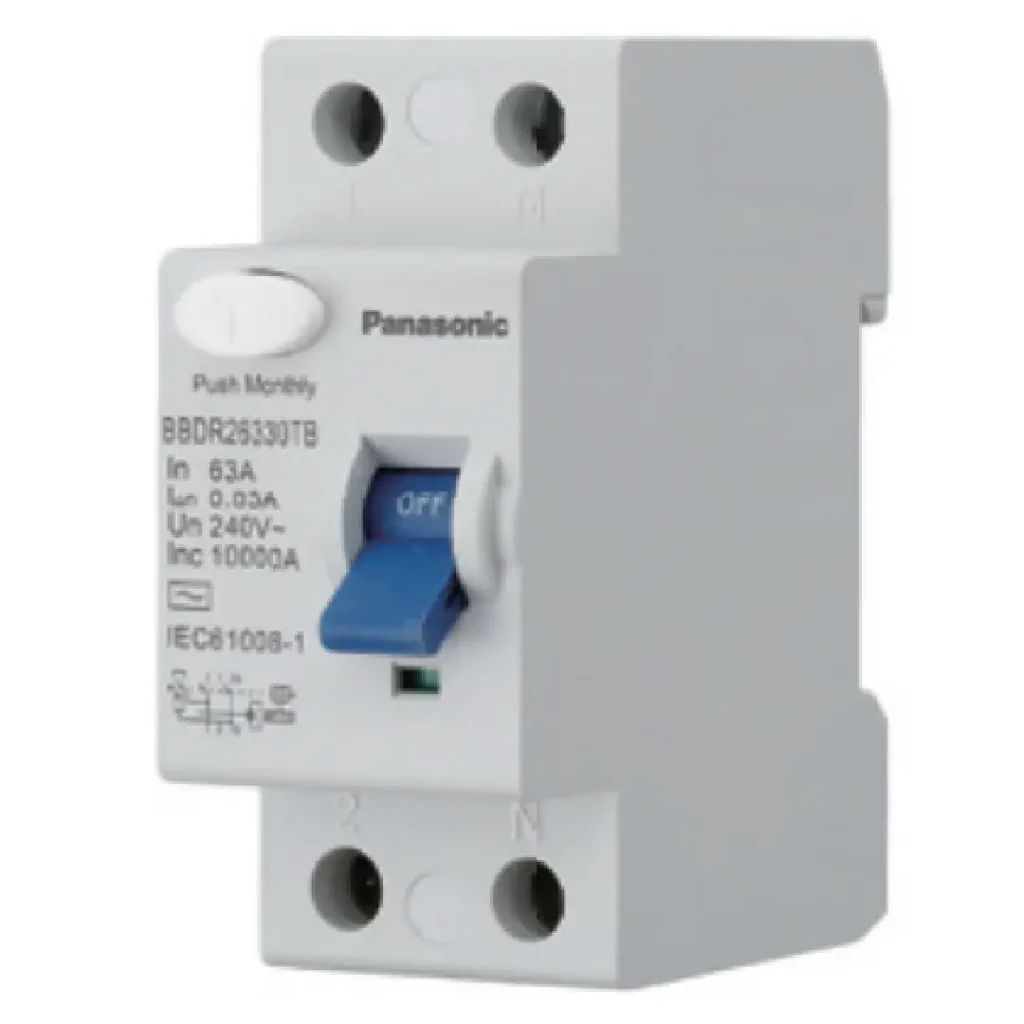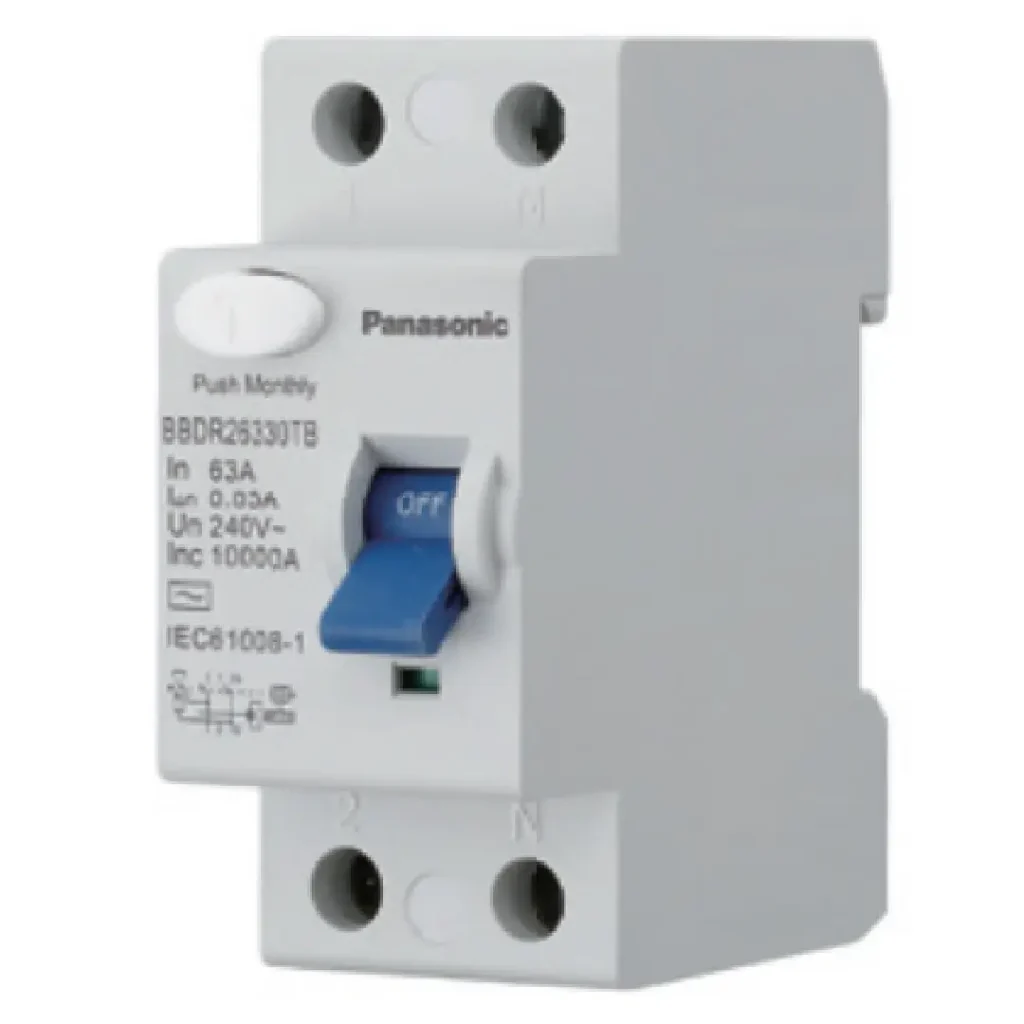- What are types of MCB?
MCBs are categorized based on trip curves, which represent their response time to overcurrent: Type B (quick trip for residential use), Type C (medium trip for commercial applications), and Type D (slow trip for industrial uses with high inrush currents).
- Can MCB protect against electric shock?
While MCBs primarily protect against overcurrent and short circuits, they don’t offer direct protection against electric shocks. For shock protection, one would need a Residual Current Circuit Breaker (RCCB) or Ground Fault Circuit Interrupter (GFCI).
- Are there any safety precuation to consider with MCB?
Always ensure the MCB is of the correct rating for your circuit. Periodically inspect for signs of wear or damage. Do not force a tripped MCB to stay on, and always consult professionals for installation or troubleshooting.
- What appliances need an isolator switch?
Small appliances such as microwave ovens, electric iron and electric kettles don’t require an isolation switch when maintenance is done. Air conditioners, refrigerators and exhaust fans need an isolation switch to ease the challenges associated with maintenance and repairs.
- Which is better - a circuit breaker or an electrical isolator?
In higher voltage environments, both circuit breakers and electrical isolators are used. A circuit breaker cuts off the current to the whole circuit and the latter then isolates a section during servicing. Both are needed for ensuring electrical safety.
- Which conditions does the isolator work?
Unlike a circuit breaker, an electrical isolator does not have an arc control system. It can be used only during offload conditions.
RCCB
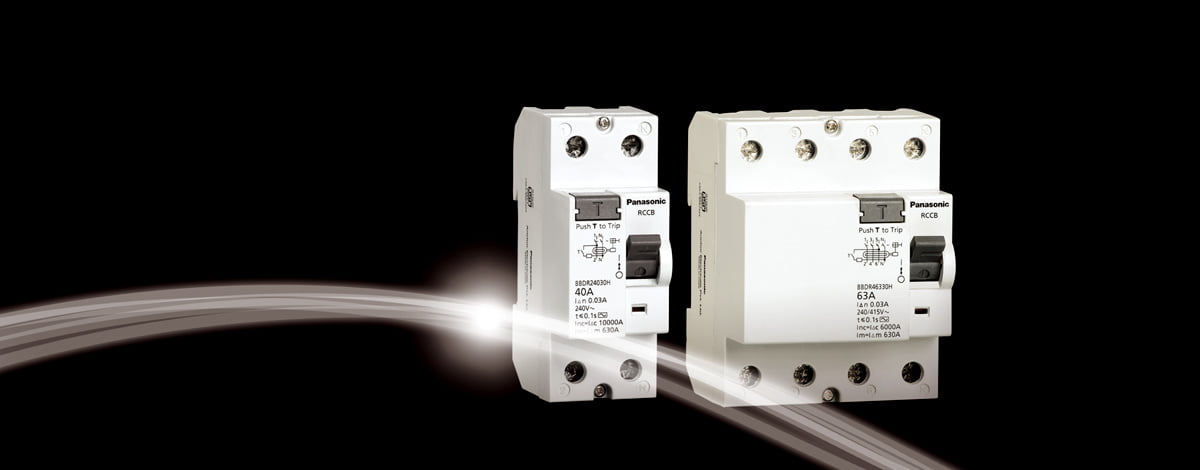
RCCB Switchgears for advanced protection against residual current. These high-performance circuit breakers are designed to ensure safety and prevent electrical accidents.
Simple and robust operating mechanism
- Test button 'T' is provided for periodic check up - Automatically disconnect the circuit when earth fault/leakage current occurs
Series General Specs
| Standard | IEC |
|---|---|
| Certification | RoHS |
| Rated Frequency | 50/60Hz |
| Operating Temperature | -10°C~60°C |
FAQs
Switchgears
Recently viewed products
Easily access the products you've been looking at on our website. Quickly find the items you were interested in and continue your journey with us.

